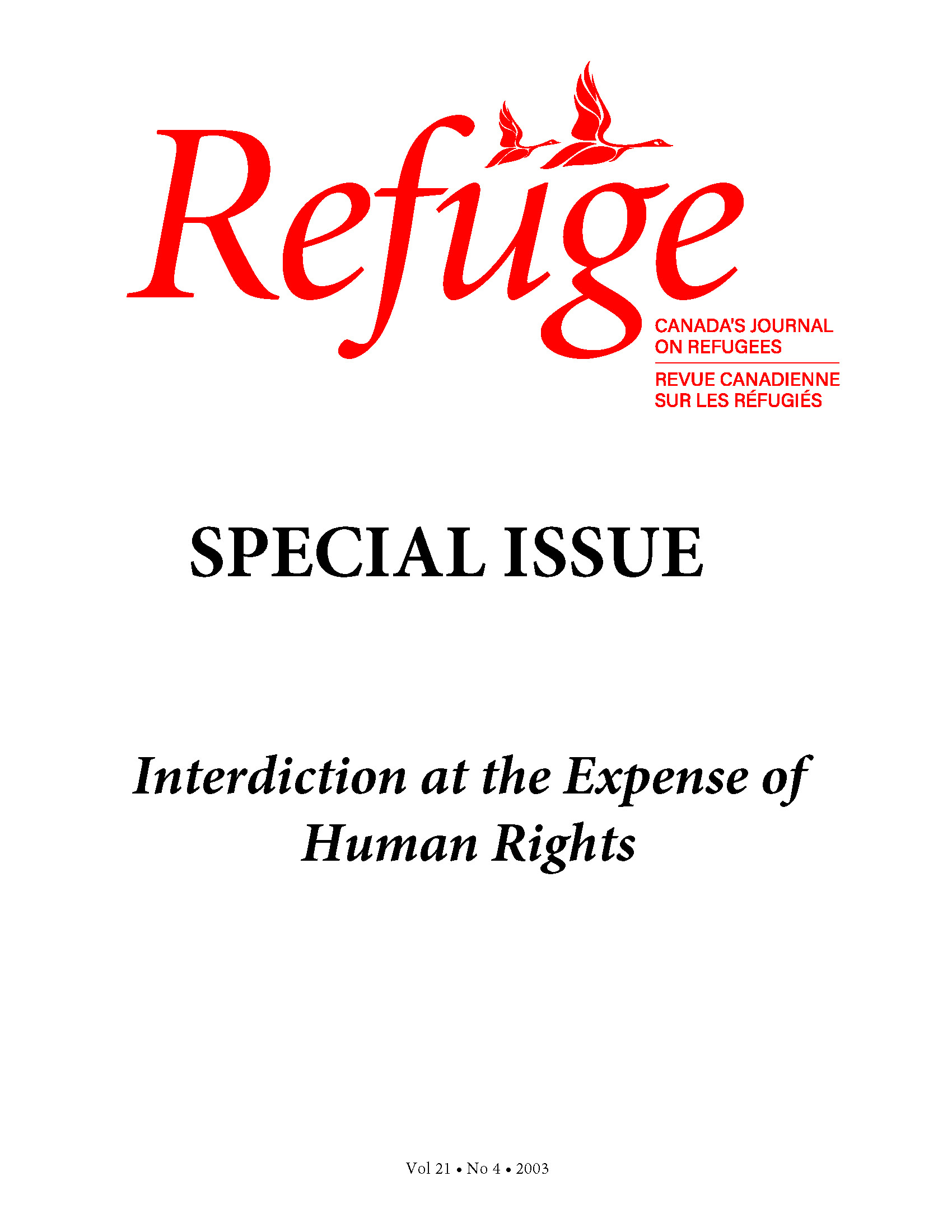In-Country Refugee Processing of Haitians: The Case Against
DOI:
https://doi.org/10.25071/1920-7336.21310Keywords:
United States, Haitian refugees, resettlement, refugee status determination, interdictionAbstract
Reviewing past experience with in-country processing in Haiti and its links to American interdiction policies, as well as the history of Cuban migration to the United States, this paper argues against in-country processing for Haitian refugees. The paper asserts that in-country processing in Haiti in the early 1990s was a failure, and arguably was used as a justification for returning to persecution far more people than it saved. The very existence of a small aperture through which relatively few selected individuals will be able to pass for legal admission to the United States is likely to erode the rights of many more Haitian asylum seekers seeking to leave spontaneously and, in particular, to serve to rationalize migration control measures that seriously compromise the fundamental principles of refugee law.Metrics
Downloads
Published
How to Cite
Issue
Section
License
Copyright (c) 2003 Bill Frelick

This work is licensed under a Creative Commons Attribution-NonCommercial 4.0 International License.
Refuge authors retain the copyright over their work, and license it to the general public under the Creative Commons Attribution-Non Commercial License International (CC BY-NC 4.0). This license allows for non-commercial use, reproduction and adaption of the material in any medium or format, with proper attribution. For general information on Creative Commons licences, visit the Creative Commons site. For the CC BY-NC 4.0 license, review the human readable summary.







